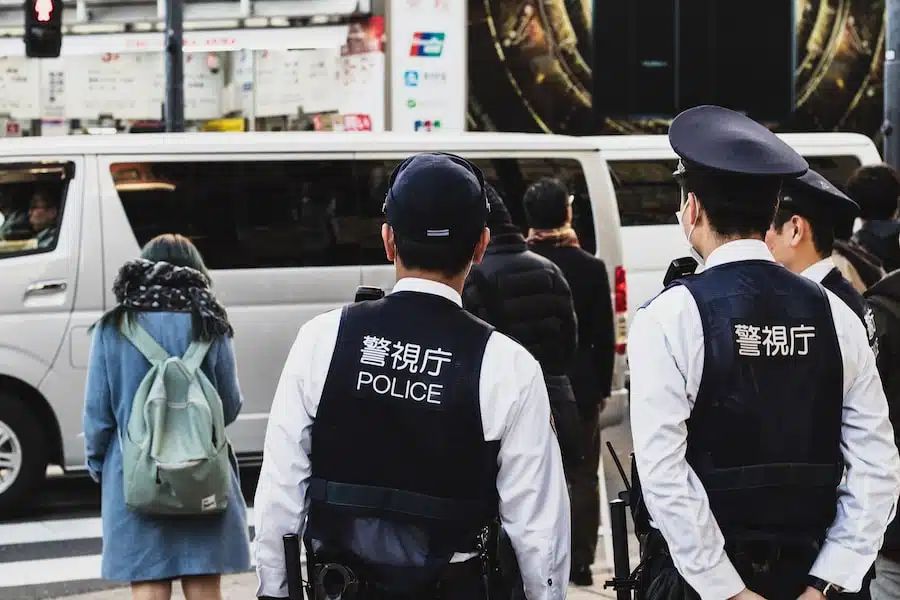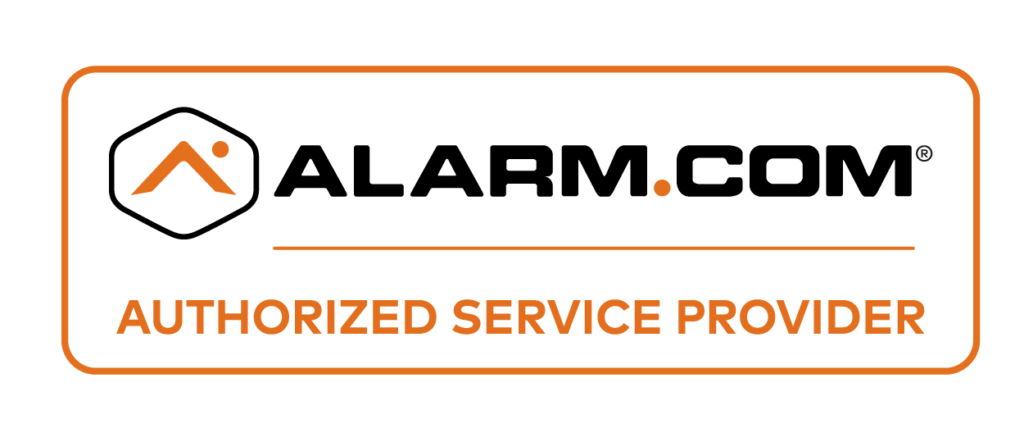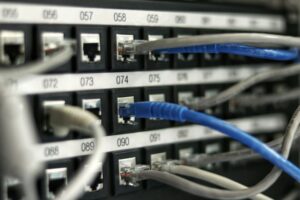Commercial security systems refer to the various measures and technologies put in place to protect businesses from potential threats and risks. These systems are designed to safeguard the physical assets, employees, customers, and sensitive information of a company. In today’s world, where security breaches and thefts are becoming increasingly common, having a reliable security system is of utmost importance for businesses of all sizes.
The importance of having a reliable security system for businesses cannot be overstated. Not only does it provide protection against theft and vandalism, but it also helps in preventing unauthorized access, ensuring the safety of employees and customers, and mitigating potential risks. A well-designed security system can act as a deterrent for criminals, reducing the likelihood of incidents occurring in the first place. Additionally, it provides business owners with peace of mind, knowing that their assets and investments are protected.
Key Takeaways
- Commercial security systems are essential for protecting businesses and their assets.
- Tailored solutions are necessary for different industries to address specific security concerns.
- Retail security systems help prevent theft and ensure customer safety.
- Financial security systems protect assets and prevent fraud.
- Healthcare security systems ensure patient privacy and safety.
The Importance of Tailored Solutions for Different Industries
Different industries have different security needs based on their unique characteristics and vulnerabilities. Therefore, it is crucial to have tailored security solutions that address these specific requirements. A one-size-fits-all approach may not be effective in providing adequate protection for businesses operating in diverse industries.
Having a tailored security system offers several benefits. Firstly, it ensures that all potential vulnerabilities and risks are identified and addressed. This means that the security measures put in place are specifically designed to mitigate the threats that are most relevant to a particular industry. Secondly, tailored solutions take into account the specific needs and operations of a business, ensuring that the security system seamlessly integrates with existing processes without causing disruptions. Lastly, customized security systems can be scalable, allowing businesses to easily expand or modify their security measures as their needs evolve.
Retail Security Systems: Protecting Your Business and Customers
Retail businesses face various security threats, including shoplifting, employee theft, organized retail crime, and fraudulent activities. To combat these risks, retail security systems are designed to provide comprehensive protection for both the business and its customers.
Common security systems used in retail businesses include video surveillance, access control systems, alarm systems, and electronic article surveillance (EAS) systems. Video surveillance allows for real-time monitoring of the premises, deterring potential criminals and providing evidence in case of incidents. Access control systems restrict unauthorized entry to certain areas, ensuring that only authorized personnel have access to sensitive areas such as stockrooms or cash registers. Alarm systems can be triggered in case of a break-in or unauthorized access, alerting the authorities and deterring criminals. EAS systems are used to prevent theft by attaching electronic tags to merchandise, which trigger an alarm if not properly deactivated at the point of sale.
Having a retail security system offers numerous benefits. It helps in reducing theft and shoplifting, protecting the business’s inventory and profits. It also creates a safer environment for customers, enhancing their shopping experience and building trust in the brand. Additionally, retail security systems can provide valuable insights into customer behavior and help in identifying areas for improvement in store operations.
Financial Security Systems: Keeping Your Assets Safe and Secure
Security is of utmost importance in financial institutions such as banks, credit unions, and investment firms. These institutions deal with large amounts of money and sensitive customer information, making them attractive targets for criminals. Therefore, having robust security systems is crucial to protect assets and maintain the trust of customers.
Financial security systems typically include video surveillance, access control systems, alarm systems, and intrusion detection systems. Video surveillance allows for constant monitoring of the premises, deterring potential criminals and providing evidence in case of incidents. Access control systems restrict entry to authorized personnel only, ensuring that sensitive areas such as vaults or data centers are secure. Alarm systems can be triggered in case of a break-in or unauthorized access, alerting the authorities and allowing for immediate response. Intrusion detection systems use sensors to detect any unauthorized entry or movement within the premises, providing an additional layer of security.
Having a financial security system offers several benefits. It helps in preventing theft and fraud, protecting the assets and investments of the institution and its customers. It also ensures the privacy and confidentiality of customer information, complying with regulatory requirements and building trust in the institution. Additionally, financial security systems can help in reducing insurance costs, as they demonstrate a commitment to risk management and loss prevention.
Healthcare Security Systems: Ensuring Patient Privacy and Safety
Patient privacy and safety are of paramount importance in healthcare facilities such as hospitals, clinics, and nursing homes. These institutions handle sensitive patient information and provide critical care services, making them vulnerable to security breaches and threats. Therefore, having robust security systems is essential to protect patients, staff, and sensitive data.
Healthcare security systems typically include video surveillance, access control systems, alarm systems, and panic buttons. Video surveillance allows for constant monitoring of critical areas such as entrances, emergency rooms, or medication storage areas. Access control systems restrict entry to authorized personnel only, ensuring that sensitive areas such as patient rooms or operating theaters are secure. Alarm systems can be triggered in case of emergencies or unauthorized access, alerting the authorities and allowing for immediate response. Panic buttons can be installed in areas where staff may feel threatened or require immediate assistance.
Having a healthcare security system offers numerous benefits. It helps in preventing unauthorized access to patient information, ensuring compliance with privacy regulations such as HIPAA. It also creates a safe environment for patients and staff, reducing the risk of violence or theft within the premises. Additionally, healthcare security systems can help in improving emergency response times by providing real-time alerts and notifications.
Manufacturing Security Systems: Protecting Your Equipment and Inventory
Manufacturing businesses face various security threats, including theft of raw materials or finished products, vandalism, and industrial espionage. To protect their equipment, inventory, and intellectual property, manufacturing businesses require robust security systems that address these specific risks.
Common security systems used in manufacturing businesses include video surveillance, access control systems, alarm systems, and perimeter security. Video surveillance allows for constant monitoring of critical areas such as production lines or storage facilities, deterring potential criminals and providing evidence in case of incidents. Access control systems restrict entry to authorized personnel only, ensuring that sensitive areas such as research and development labs or equipment storage areas are secure. Alarm systems can be triggered in case of a break-in or unauthorized access, alerting the authorities and allowing for immediate response. Perimeter security measures such as fences, gates, and surveillance cameras help in preventing unauthorized access to the premises.
Having a manufacturing security system offers several benefits. It helps in reducing theft and vandalism, protecting the business’s equipment, inventory, and intellectual property. It also ensures the safety of employees by creating a secure working environment. Additionally, manufacturing security systems can help in improving operational efficiency by providing insights into production processes and identifying areas for improvement.
Education Security Systems: Creating a Safe Learning Environment
Safety is a top priority in educational institutions such as schools, colleges, and universities. These institutions are responsible for the well-being of students, staff, and visitors, making it crucial to have effective security systems in place.
Education security systems typically include video surveillance, access control systems, alarm systems, and emergency notification systems. Video surveillance allows for constant monitoring of critical areas such as entrances, hallways, or parking lots, deterring potential criminals and providing evidence in case of incidents. Access control systems restrict entry to authorized personnel only, ensuring that sensitive areas such as classrooms or administrative offices are secure. Alarm systems can be triggered in case of emergencies or unauthorized access, alerting the authorities and allowing for immediate response. Emergency notification systems can be used to quickly communicate important information to students, staff, and parents during crisis situations.
Having an education security system offers numerous benefits. It helps in creating a safe learning environment for students, staff, and visitors, enhancing their overall experience and well-being. It also helps in preventing unauthorized access to the premises, reducing the risk of violence or theft. Additionally, education security systems can provide valuable insights into student behavior and help in identifying areas for improvement in campus safety.
Hospitality Security Systems: Enhancing Guest Experience and Safety
Safety and security are critical in the hospitality industry, which includes hotels, resorts, restaurants, and entertainment venues. These businesses are responsible for the well-being of their guests and staff, making it essential to have effective security systems in place.
Hospitality security systems typically include video surveillance, access control systems, alarm systems, and emergency response systems. Video surveillance allows for constant monitoring of critical areas such as entrances, lobbies, or parking lots, deterring potential criminals and providing evidence in case of incidents. Access control systems restrict entry to authorized personnel only, ensuring that sensitive areas such as guest rooms or back-of-house areas are secure. Alarm systems can be triggered in case of emergencies or unauthorized access, alerting the authorities and allowing for immediate response. Emergency response systems can be used to quickly communicate important information to guests and staff during crisis situations.
Having a hospitality security system offers several benefits. It helps in creating a safe and secure environment for guests and staff, enhancing their overall experience and satisfaction. It also helps in preventing unauthorized access to guest rooms or sensitive areas, reducing the risk of theft or privacy breaches. Additionally, hospitality security systems can provide valuable insights into guest behavior and help in improving operational efficiency.
Transportation Security Systems: Securing Your Fleet and Cargo
Transportation businesses such as logistics companies, trucking companies, and shipping companies face various security threats, including theft of cargo, hijacking, and unauthorized access to vehicles or facilities. To protect their fleet and cargo, transportation businesses require robust security systems that address these specific risks.
Common security systems used in transportation businesses include video surveillance, GPS tracking systems, access control systems, and alarm systems. Video surveillance allows for constant monitoring of critical areas such as loading docks or parking lots, deterring potential criminals and providing evidence in case of incidents. GPS tracking systems enable real-time tracking of vehicles and cargo, ensuring their location and safety at all times. Access control systems restrict entry to authorized personnel only, ensuring that sensitive areas such as warehouses or distribution centers are secure. Alarm systems can be triggered in case of a break-in or unauthorized access, alerting the authorities and allowing for immediate response.
Having a transportation security system offers numerous benefits. It helps in reducing theft of cargo and vehicles, protecting the business’s assets and ensuring timely delivery of goods. It also enhances the safety of drivers and staff by creating a secure working environment. Additionally, transportation security systems can help in improving operational efficiency by providing insights into logistics processes and identifying areas for improvement.
Government Security Systems: Safeguarding Public Spaces and Infrastructure
Security is of utmost importance in government institutions such as courthouses, government offices, and public spaces. These institutions are responsible for the safety and well-being of the public, making it crucial to have effective security systems in place.
Government security systems typically include video surveillance, access control systems, alarm systems, and perimeter security. Video surveillance allows for constant monitoring of critical areas such as entrances, public spaces, or parking lots, deterring potential criminals and providing evidence in case of incidents. Access control systems restrict entry to authorized personnel only, ensuring that sensitive areas such as government offices or courtrooms are secure. Alarm systems can be triggered in case of emergencies or unauthorized access, alerting the authorities and allowing for immediate response. Perimeter security measures such as fences, gates, and surveillance cameras help in preventing unauthorized access to government facilities.
Having a government security system offers several benefits. It helps in safeguarding public spaces and infrastructure, ensuring the safety and well-being of the public. It also helps in preventing unauthorized access to sensitive areas, reducing the risk of violence or terrorism. Additionally, government security systems can provide valuable insights into public behavior and help in improving emergency response times.
In conclusion, having a reliable security system is of utmost importance for businesses operating in various industries. Commercial security systems are designed to protect businesses from potential threats and risks, ensuring the safety of employees, customers, and assets. Tailored security solutions are essential as different industries have different security needs based on their unique characteristics and vulnerabilities.
Retail businesses require security systems that protect against theft and shoplifting, ensuring the safety of inventory and customers. Financial institutions need robust security systems to protect assets and maintain the trust of customers. Healthcare facilities require security systems that ensure patient privacy and safety. Manufacturing businesses need security systems that protect equipment, inventory, and intellectual property. Educational institutions require security systems that create a safe learning environment for students and staff. Hospitality businesses need security systems that enhance guest experience and safety. Transportation businesses require security systems that secure their fleet and cargo. Government institutions need security systems that safeguard public spaces and infrastructure.
Investing in a tailored security system for your business offers numerous benefits. It helps in mitigating potential risks, preventing theft and vandalism, ensuring the safety of employees and customers, and maintaining the trust of stakeholders. Additionally, it provides business owners with peace of mind, knowing that their assets and investments are protected. Therefore, it is crucial for businesses to prioritize the implementation of a reliable and tailored security system to safeguard their operations and ensure long-term success.
FAQs
What are commercial security systems?
Commercial security systems are a set of integrated security solutions designed to protect businesses, organizations, and institutions from various security threats such as theft, vandalism, and unauthorized access.
What are the different types of commercial security systems?
There are various types of commercial security systems, including access control systems, video surveillance systems, intrusion detection systems, fire alarm systems, and intercom systems.
What industries can benefit from commercial security systems?
Commercial security systems can benefit various industries, including retail, healthcare, education, hospitality, finance, government, and transportation.
What are the benefits of commercial security systems?
Commercial security systems provide several benefits, including improved safety and security, reduced risk of theft and vandalism, enhanced employee productivity, and increased customer confidence.
How are commercial security systems tailored to different industries?
Commercial security systems are tailored to different industries based on their unique security needs and requirements. For example, a retail store may require a video surveillance system to monitor customer behavior and prevent theft, while a hospital may require an access control system to restrict access to sensitive areas.
What factors should be considered when choosing a commercial security system?
When choosing a commercial security system, factors such as the size and layout of the facility, the type of business or industry, the level of security required, and the budget should be considered. It is also important to choose a reputable and experienced security provider.









